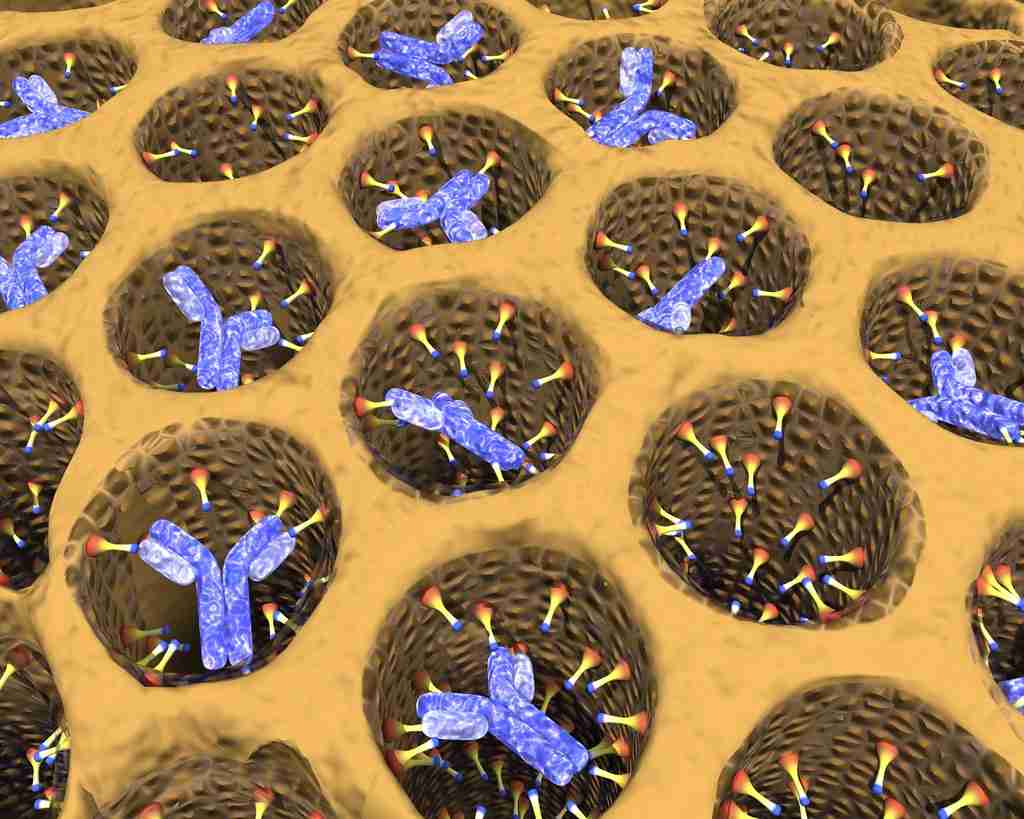27 Fun Facts About The Immune System
1. The immune system has a ‘memory.’
Once the immune system responds to a pathogen, it remembers it for faster response in future encounters.
This memory is the basis of how vaccinations work, creating immunity without causing the disease.
2. The thymus trains T cells.
Located behind your breastbone, the thymus is where T cells mature and learn to tell self from non-self.
This process is crucial for preventing autoimmune diseases.
3. Your gut is a major immune organ.
About 70% of your immune system is located in your gut.
The gut flora plays a significant role in fighting infections and maintaining overall health.
4. Stress can weaken your immune system.
Chronic stress exposes your body to a steady stream of stress hormones, affecting immune response.
This can make you more susceptible to infections and slow down recovery from illness.
5. Breast milk is packed with immune boosters.
It contains antibodies and white blood cells from the mother, helping the baby’s immune system develop.
This is one reason why breastfeeding is recommended for infants’ overall health.
6. Fever is an immune response, which is one of the fun facts about the Immune System.
Fever is the immune system’s way of fighting off pathogens by creating a hotter-than-normal environment.
Increased body temperature can inhibit the growth of some pathogens.
7. Allergies are due to immune system overreactions.
Allergies occur when the immune system reacts to harmless substances as if they were threats.
This overreaction can cause symptoms ranging from sneezing to serious reactions like anaphylaxis.
8. Sleep is crucial for immune function.
Lack of sleep can impair the function of your immune system.
Quality sleep helps the immune system to fight infections and recover from illness more effectively.
9. The immune system can attack the body.
In autoimmune diseases, the immune system mistakenly attacks the body’s cells.
Conditions like Type 1 diabetes and rheumatoid arthritis are examples of this malfunction.
10. The bone marrow is an immune system powerhouse.
Bone marrow produces red and white blood cells, crucial components of the immune system.
It acts as a vital part of the body’s defense mechanism.
11. Vitamin D is essential for immune health.
Vitamin D plays a significant role in strengthening the immune system.
A deficiency in Vitamin D can impair immune response and increase susceptibility to infection.
12. Exercise can boost your immune system.

Regular, moderate exercise is beneficial for maintaining a healthy immune system.
It helps in the efficient circulation of immune cells in the body.
13. The spleen filters blood.
The spleen plays a role in filtering blood and housing immune system cells.
It helps fight certain kinds of bacteria that cause pneumonia and meningitis.
14. Laughing might boost your immune system.
Laughter and a positive mindset can have a beneficial effect on the immune system.
It can reduce stress hormones and increase the number and activity of immune cells.
15. The lymphatic system is a key part of the immune system.
The lymphatic system transports white blood cells and helps in the removal of toxins.
It plays a crucial role in defending the body against external threats.
16. Antibodies are highly specific.

Each antibody is designed to recognize and bind to a specific antigen.
This specificity is key to the effectiveness of the body’s immune response.
17. Immune system cells communicate with each other.
Cells of the immune system communicate through signals and receptors.
This communication is essential for coordinating an effective immune response.
18. There are two types of immunity: innate and adaptive.
Innate immunity is the first line of defense, while adaptive immunity develops over time.
Both work together to protect the body from pathogens.
19. Vaccines train the immune system.
Vaccines mimic infection, training the immune system to recognize and combat pathogens.
This training helps the body to develop immunity without causing the illness itself.
20. Skin is the first line of immune defense.

Your skin acts as a physical barrier, protecting against pathogens.
It produces antimicrobial proteins and houses various immune cells.
21. Autoimmune diseases are more common in women.
Women have a higher incidence of autoimmune diseases compared to men.
This is thought to be due to differences in hormones and genetic factors.
22. Some people have naturally stronger immune systems.
Genetic factors can influence the strength and responsiveness of the immune system.
This variation explains why some people get sick more often than others.
23. The immune system can help fight cancer.
Part of the immune system’s role is to detect and destroy abnormal cells, including cancerous ones.
Immunotherapy is a type of cancer treatment that helps your immune system fight cancer.
24. Newborns receive antibodies from their mothers.

Babies are born with some immunity which they receive through the placenta.
This passive immunity lasts for a few months after birth until the immune system starts functioning fully.
25. What are the cells in the immune system?
The immune system consists of various cells, including white blood cells (lymphocytes, neutrophils, and monocytes), which play key roles in defending the body against infections.
26. The immune system changes with age.
As people age, their immune response capability becomes reduced.
This is why the elderly are more susceptible to infections and why vaccination is important for them.
27. Cold weather does not make you sick directly.
Viruses are more stable and linger longer in colder, drier climates.
However, it’s the viruses themselves, not the cold weather, that cause the sickness.
FAQs
Organs of the immune system include the thymus, bone marrow, spleen, tonsils, and lymph nodes. These organs work together to produce and activate immune cells.
Essential vitamins for the immune system include vitamin C, vitamin D, zinc, and vitamin E. These nutrients support the proper functioning of immune cells.
The immune system’s primary function is to defend the body against pathogens, such as viruses and bacteria, and to recognize and eliminate abnormal cells, like cancer cells.
Foods rich in vitamins and antioxidants, such as fruits, vegetables, nuts, and seeds, can help boost the immune system. Consuming a balanced diet is crucial for overall immune health.
Boosting the immune system involves maintaining a healthy lifestyle, including regular exercise, sufficient sleep, a nutritious diet, and managing stress. Consult with a healthcare professional for personalized advice.







